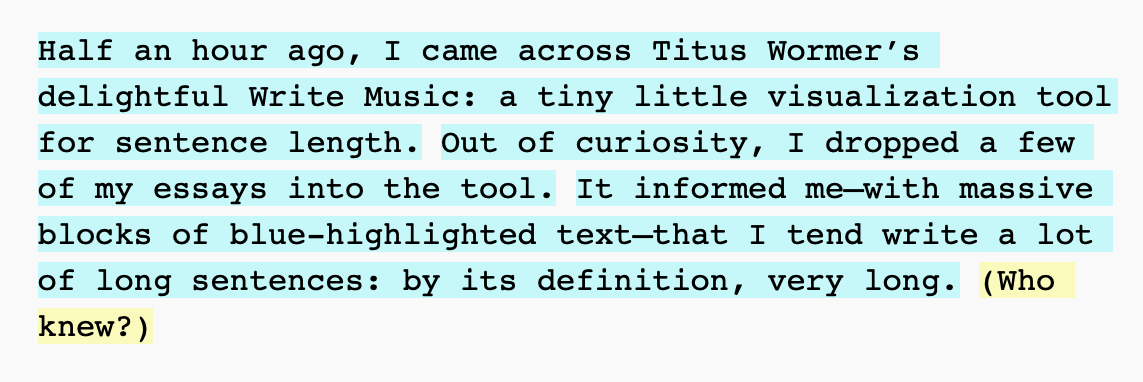Assumed audience: Users and authors of open-source software: tinkerers.
Half an hour ago, I came across Titus Wormer’s delightful Write Music: a tiny little visualization tool for sentence length. Out of curiosity, I dropped a few of my essays into the tool. It informed me — with massive blocks of blue-highlighted text — that I tend write a lot of long sentences: by its definition, very long. (Who knew?)

The tool is open source, though. I pulled down a copy and changed it. Instead of capping out at 12 words, I let it highlight differences in much longer kinds of sentences. As a result, it is much more illuminating about my own writing:

Then I created a fork of it. So far, so “normal” in today’s open source world.
I am not, however, opening a pull request. This is just my fork. I may keep an eye on the original to see if Wormer adds any changes I want to take advantage of. I may not. The tool does exactly what I need it to now, and I can tweak it further in my own directions.
We have spent an enormous amount of time in the last decades working on building open source communities. This is good in many ways, but it has some unacknowledged downsides. Among them: that we forget that the act of sharing software, making it available to others, does not have to be social or communal, does not have to involve maintenance and the burnout that so often follows from that approach. It can simply be a gift to the world —
This exists. Do with it what you will. I expect nothing of you, and promise nothing to you.
And then by the same token: feel free to fork, to change, to play with, to alter, and not to “contribute back” every time, save perhaps by doing just the same and making your own little things available for others to play with in the same way — showing the same generosity and making clear the same lack of expectation or demand.